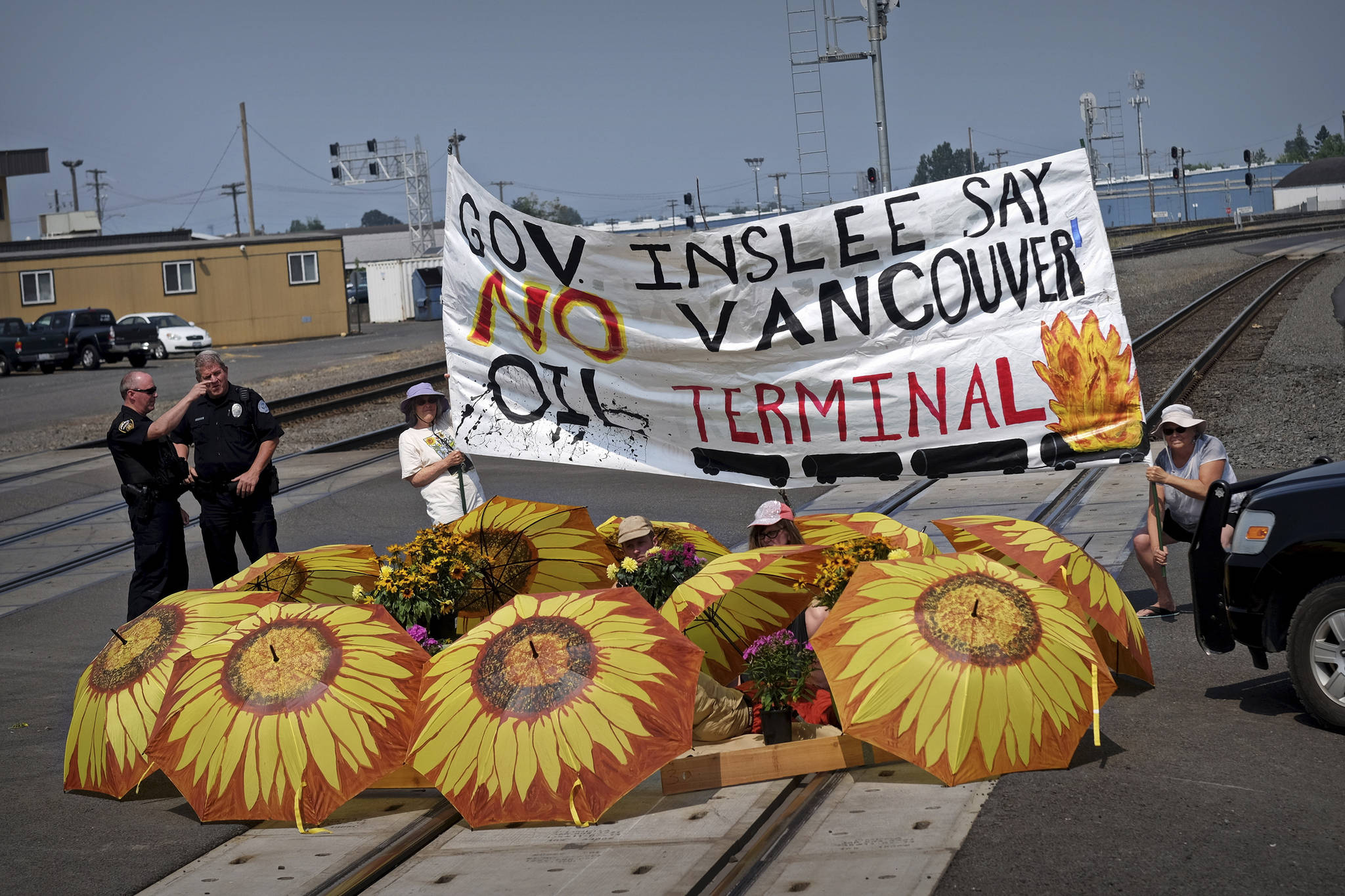About 20 minutes before noon on Monday, a group of climate activists toting sunflower umbrellas, green flower pots, fresh flowers, and a huge banner set up a blockade across the train tracks in downtown Vancouver, Wash. The goal: To block a train carrying crude oil for as long as they could. A few hours later, after some of the protesters were arrested and the oil train was on its way, it got blocked by activists again, this time in Tenino, south of Olympia.
The blockades were the first in what climate activists have been promising as a region-wide mass action against carbon infrastructure. While they’re being cagey about what they still have in store, they promise Monday’s two blockades are just the beginning.
“It’s now or never. We’re up against the wire and nobody—no politician, no agency, no industry—is stepping up to resolve the climate crisis,” said one of the protesters in a prepared statement.
In Vancouver, they succeeded in blocking the train for about an hour. Activists say one of the protesters was arrested immediately—police were onsite from the jump—but the rest of the crew stayed put under their umbrellas, arms locked to the flower pots, sometimes singing and chanting as other oil-trains clanged by on other sets of tracks, until the tracks were cleared and two more people were arrested and the rest dispersed. BNSF Railway says its police arrested just two people, total, and cited them for criminal trespass, criminal conspiracy, and obstructing trains. By midafternoon, another group of activists had blocked the tracks in Tenino. BNSF reports that there were tires stacked on the tracks there, which the railway crew was able to remove after “only a minor delay.”
Both protests decry what activists see as government inaction on climate change—“government inaction leads to direct action,” the group tweeted. But they also specifically challenge the long-proposed and controversial Tesoro-Savage Vancouver Energy terminal, which would, if built, become the largest oil-by-rail terminal in North America. The facility would load up to 360,000 barrels of crude a day off of trains and onto ships—the same volatile Bakken crude, activists point out, that exploded and burned after a train derailed in June 2016 near near Mosier, Ore.
The Tesoro-Savage project has been through years of permitting processes and public comment, and is waiting for two final things: The state Energy Facility Site Evaluation Council’s official recommendation to Gov. Jay Inslee (a decision the EFSEC has delayed six times already; the latest deadline is August 31), and then, once that recommendation is filed, a green light from Inslee. Many Washingtonians have long been calling on him to veto the project. In May, dozens of climate activists and other groups, including labor unions and businesses, delivered to Inslee’s office a total of one million letters and petitions against Tesoro-Savage and other coal and oil-export terminals in the region. “If I can stop an oil train, Governor Jay Inslee can stop an oil terminal,” said another protester from Monday morning’s action.
The group has created a website, Facebook page, and Twitter account, documenting the actions, some of which may take place closer to Seattle. We’ll update the post as we find out more.
sbernard@seattleweekly.com
This post has been updated to reflect accurate timing and arrest details in Vancouver, as well as details from the action in Tenino.








